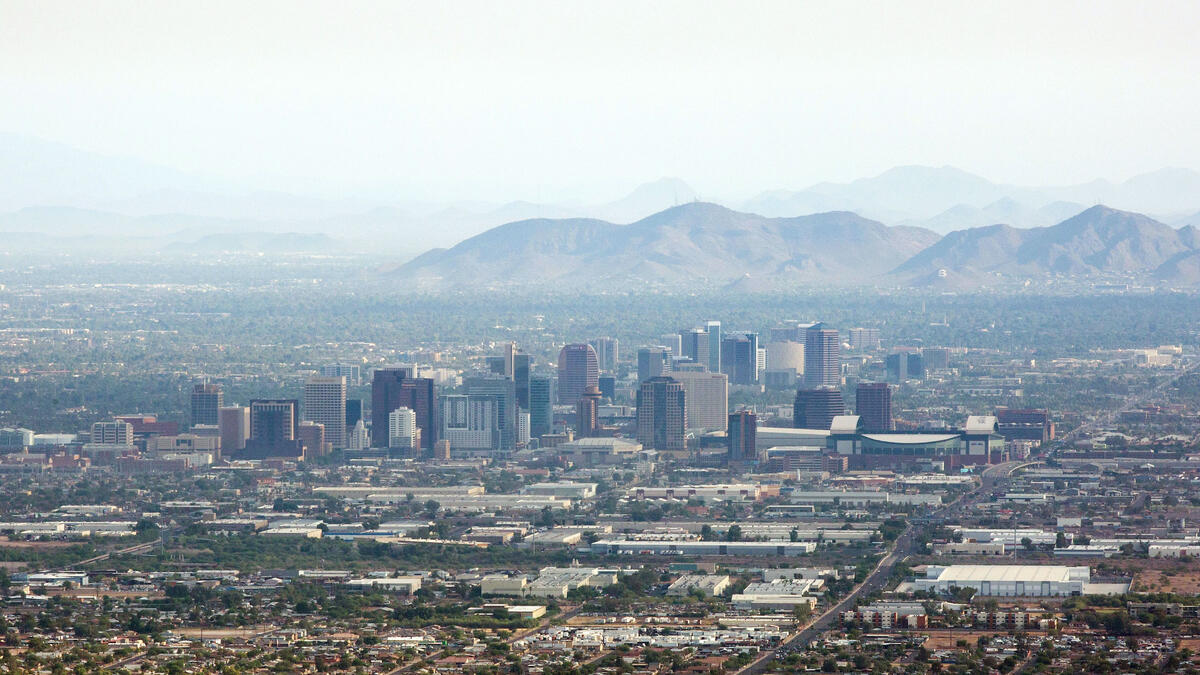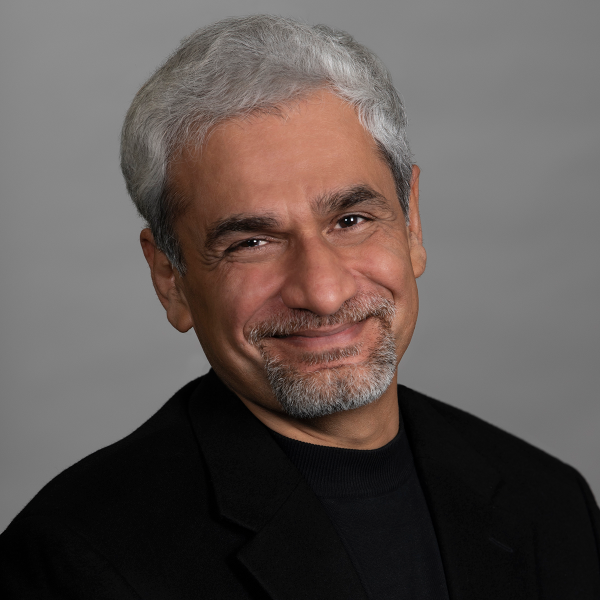Is Arizona the new Silicon Valley? It certainly could be.
A perfect storm of opportunities is brewing with manufacturing, electric vehicles and technologies like artificial intelligence.
One missing ingredient is a more widespread investor appetite to go big. But AI could change that and level the playing field, according to one Arizona State University professor.
“With a university that has been No. 1 in innovation (eight) years in a row, and No. 3 in entrepreneurship, ASU can help provide the platform to build the ecosystem to bring it all together in a much bigger way than what Stanford did for the West Coast,” said Hitendra Chaturvedi, a supply chain management professor of practice in ASU's W. P. Carey School of Business who worked for Microsoft, and subsequently has been a tech entrepreneur, before joining ASU.
ASU News spoke with Chaturvedi about this emerging trend and how trillion-dollar ideas can be hatched in the Grand Canyon State.
Note: Answers have been edited for length and clarity.
Hitendra Chaturvedi
Question: Tell me in a general sense how AI can be a generator for entrepreneurship and startups in the future.
Answer: Artificial intelligence, particularly generative AI ... is currently the talk of the town and leveling the playing field for startups, geographies and countries (similar to) the early ’90s when the internet revolution swept our lands. ...The internet leveled the playing field, challenged the brick-and-mortar business model and gave rise to behemoths like Amazon.com, which now commands much more of the market than the traditional brick-and-mortar superstars like Sears and JCPenney could have ever dreamed of.
The current avatar of AI is bringing in a similar revolution in business models and, one more time, giving a much bigger opportunity to entrepreneurs to level the playing field against the more prominent tech players that control the market today. Technology, this time in the avatar of AI, is once again calling out to entrepreneurs across the world, irrespective of their color, religion or economic status, to reimagine the future and follow through to build the next wave of trillion-dollar companies and make their own little dent in the universe.
Q: Won’t this take away jobs?
A: Yes and no ... some jobs will undoubtedly go away, but new jobs will be created. There was a time when there were many telephone operators and now there are none. Then cellphones started a whole new job sector that was more than the jobs lost. If AI-driven robots will take the jobs, these robots need to be designed, manufactured and maintained — this will create jobs that don’t exist today.
Q: With AI in place, what would be the investor’s return on investment on a small asset, and do you consider this a paradigm shift?
A: AI investments are a huge opportunity for small investors with money to invest. ... With AI, companies do not need a development team of 15 people, a customer-care team of 20 people or a marketing team of five people. A few smart people, with much less investment enabled by technologies like generative AI, can do the job of 50 people. Small investors are seeing that companies that need $10 million now can do the same as venture capitals, or better, with $250,000 — leveling the playing field.
... I believe that angel investment groups, which write smaller-size investments of their own money, have an amazing opportunity to capitalize on the AI wave by identifying some winning companies and taking them big. For smaller investors, this is a window of opportunity to make small investments sufficient to yield a considerable return on investment comparable to returns of much larger investors.
Q: How does Arizona compare with big players in the Northeast and West in attracting promising startups, given our reputation for innovation and embracing entrepreneurship?
A: In the U.S., while the Northeast has been the financial capital, the West took the crown of the high-tech capital. Both these geographies flourished because they made the ecosystem play. In the West, the critical mass coalesced around Stanford. It incubated notable tech companies that became self-sustaining, value-multiplying stratospheric phenomena attracting more ecosystem investments, savvier big-picture investors, talent and more success.
As I said earlier, AI is the game changer that is leveling the playing field once again. We in Arizona have been given such a fantastic opportunity where we are becoming the center for electric vehicles, autonomous driving technology, space technology, aerospace, robotics, high-tech manufacturing, sustainability and clean energy, to name a few — all that point to an opportunity that has the potential for us to eclipse any other option anyone has ever seen.
The Arizona investor community needs to think big ... and then when they think they have thought bigger than ever before … they need to think even bigger because that is how big this is for us. I also believe that the ASU platform will provide the “wind beneath the wings” to such an ecosystem because our students and faculty are second to neither Stanford, Harvard nor MIT.
With all the semiconductor companies coming to Arizona, this is the true Silicon Valley. I believe we are at the right place at the right time in history to write the preamble of Silicon Valley 2.0 in our state.
Top photo of metropolitan Phoenix by Deanna Dent/ASU
More Science and technology

ASU and Deca Technologies selected to lead $100M SHIELD USA project to strengthen U.S. semiconductor packaging capabilities
The National Institute of Standards and Technology — part of the U.S. Department of Commerce — announced today that it plans to award as much as $100 million to Arizona State University and Deca…

From food crops to cancer clinics: Lessons in extermination resistance
Just as crop-devouring insects evolve to resist pesticides, cancer cells can increase their lethality by developing resistance to treatment. In fact, most deaths from cancer are caused by the…

ASU professor wins NIH Director’s New Innovator Award for research linking gene function to brain structure
Life experiences alter us in many ways, including how we act and our mental and physical health. What we go through can even change how our genes work, how the instructions coded into our DNA are…

